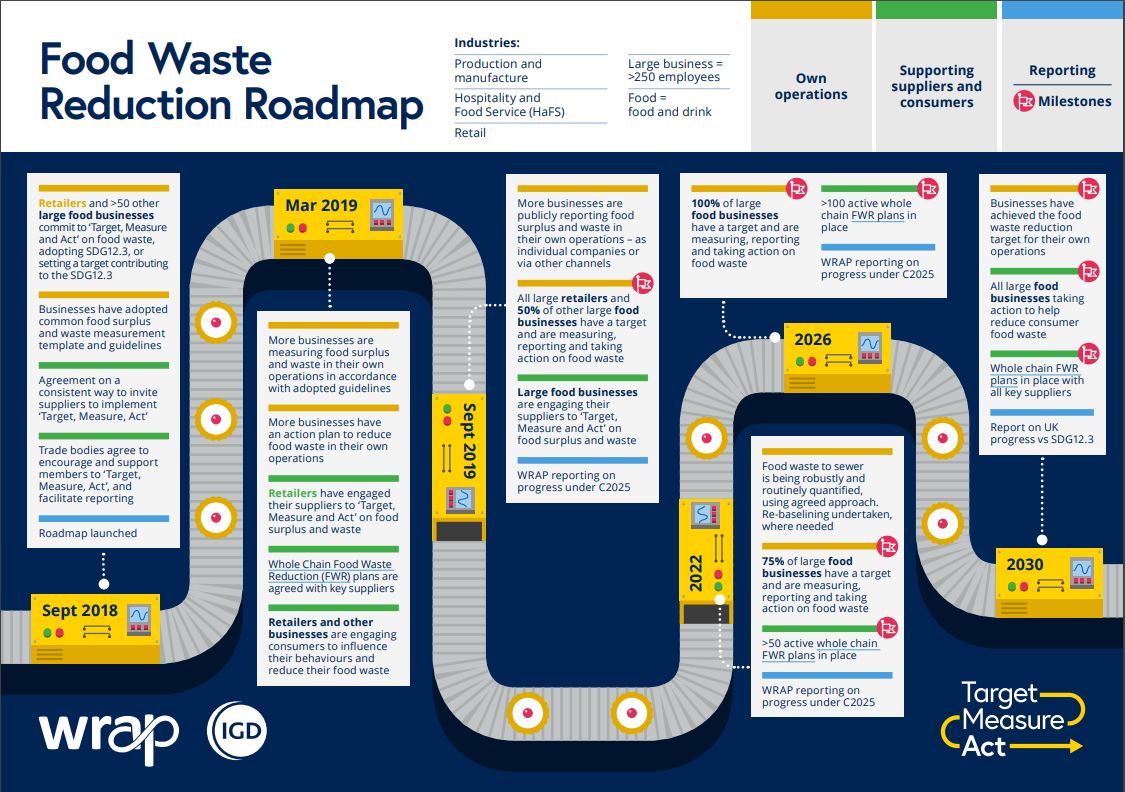
Waste Not, Want Not
This article first appeared in SHD Logistics Magazine on INSERT DATE
Earlier this month the great and the good of the food industry gathered to declare a shared ambition to halve the amount of food we waste in the UK by 2030. As I read the news my mind immediately filled with guilty of images of the half-eaten salad bags, soft tomatoes and dried out cheese that regularly have to be evacuated from my family fridge.
The good news is that my local council just provided me with a couple of food waste bins (one large, one small) in time for the start of weekly kerbside food waste collections in our areas. So I am partially redeemed as an enthusiastic donator to the cause of anaerobic digestion.
Before I get letters, I know that composting is not really the answer. I should be doing a better job of weekly meal planning; as well as being more creative with my leftover recipes and definitely being more persistent in my daily battles with my kids’ unwillingness to eat anything that is put in front of them. But I figure that the path to righteous consumerism is about small manageable steps.
At least I know I’m not alone. Many millions of us are bad meal planners, impulse buyers and convenience food cravers. Globally, we waste one third of the human food that is grown or reared on our planet every year. That is a shocking figure and one of the most obvious ways in which we have to change, if we are serious about the battle against climate change.
The Food Waste Challenge
The food waste challenge is very much a tale of two very different worlds. We, in the developing world, live our daily lives taking for granted the highly efficient, secure, supply chain that gets most of the food grown for us – to us – in a safe and nutritious form (only for us to then throw too much of it away). In the developing the world, the problem is almost the mirror opposite. The food that gets to the consumer is very rarely wasted. The tragedy is that the significant majority of food produced for these consumers wastes before it gets to them.
I take two lessons from this. The first is that we must resist those that will argue that the answer is to impose heavy handed restrictions on innovation in the food supply chain. There are misty eyed commentators that will talk about the virtues of post war rationing, or the need to make food more expensive, shopping only at artisanal farmers markets in Waitrose car parks.
We must resist all interventions designed to artificially impede, slow down or drive inefficiencies into our supply chain. The cold chain is the first line defence against food waste. That is true in the the developing and the developed worlds. Investing in, and improving systems, knowledge and skills within the cold chain are vitally important to meeting the food waste challenge.
I regret that we will probably have to remind some green campaigners, regulators and politicians of this pretty regularly in the months and years ahead,
The second lesson is that the logistics sector can do more to tackle the problem of food waste head on. The government had the right idea when it announced that it would spend £6 million on investments in initiatives that help to ensure food that is currently wasted finds it way to those that need it.
The obvious schemes are charitable initiatives like Fare Share that does excellent work taking unwanted food donated by retailers and restaurants and using it to feed those that need it most.
I have to say that I have a particular affection for initiatives like Company Shop, because it is a self-sustaining, profitable business model, that buys short coded stock from manufacturers and retailers and sells that food for a profit. A Company Shop customer is a sophisticated bargain hunter not a charity case.
In my view, if we are going to deliver on the bold food waste objectives the industry has set out it is the business solutions rather than the charitable initiatives that will be the game changers.
So as we set about meeting the 50% food waste reduction target, there will have to be lots of education, incentives and cajoling of lazy consumers like me, but most of all we will need some smart, sustainable, logistics solutions that helps moves food from where it is not wanted or needed to where it is. Now we know we can do that.
To find out more about this important initiative visit http://www.wrap.org.uk/food-waste-reduction-roadmap

Leave a Reply
You must be logged in to post a comment.